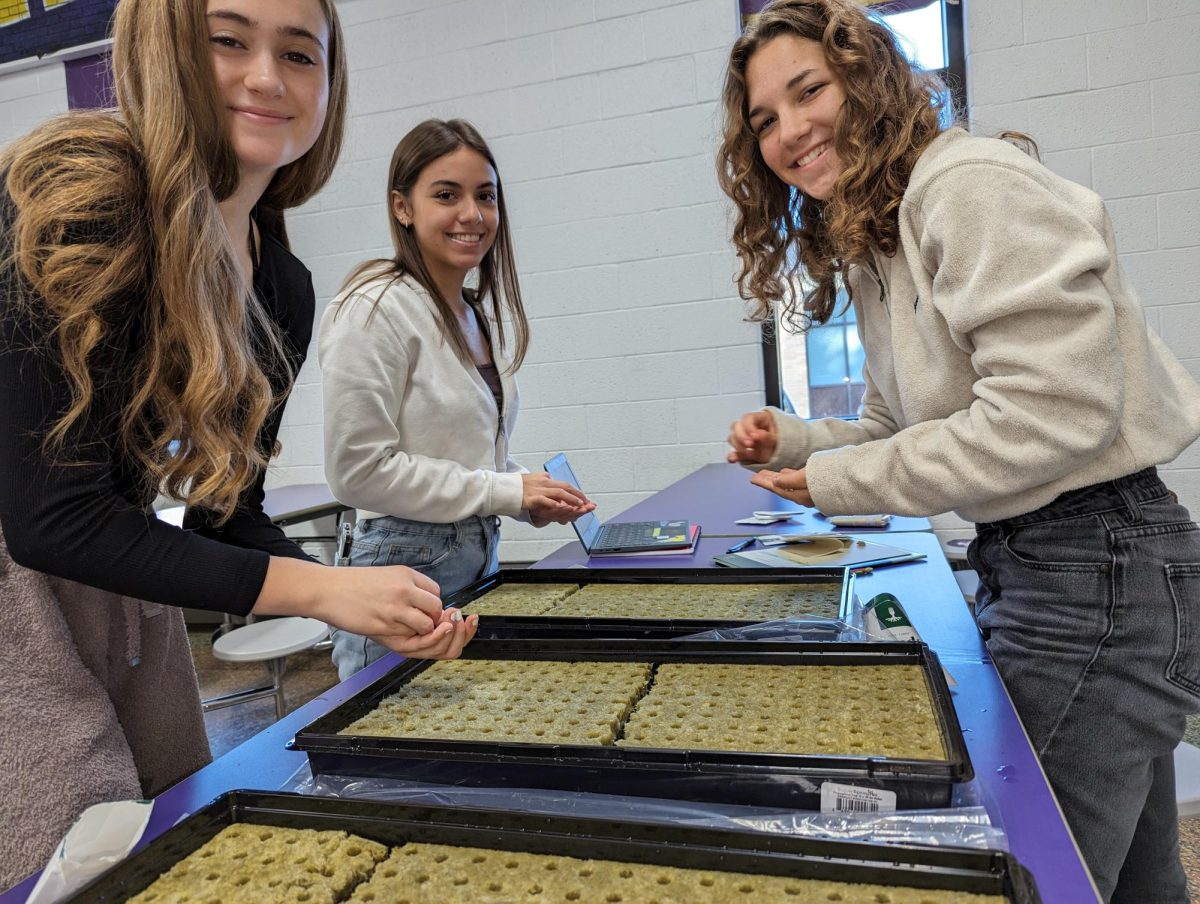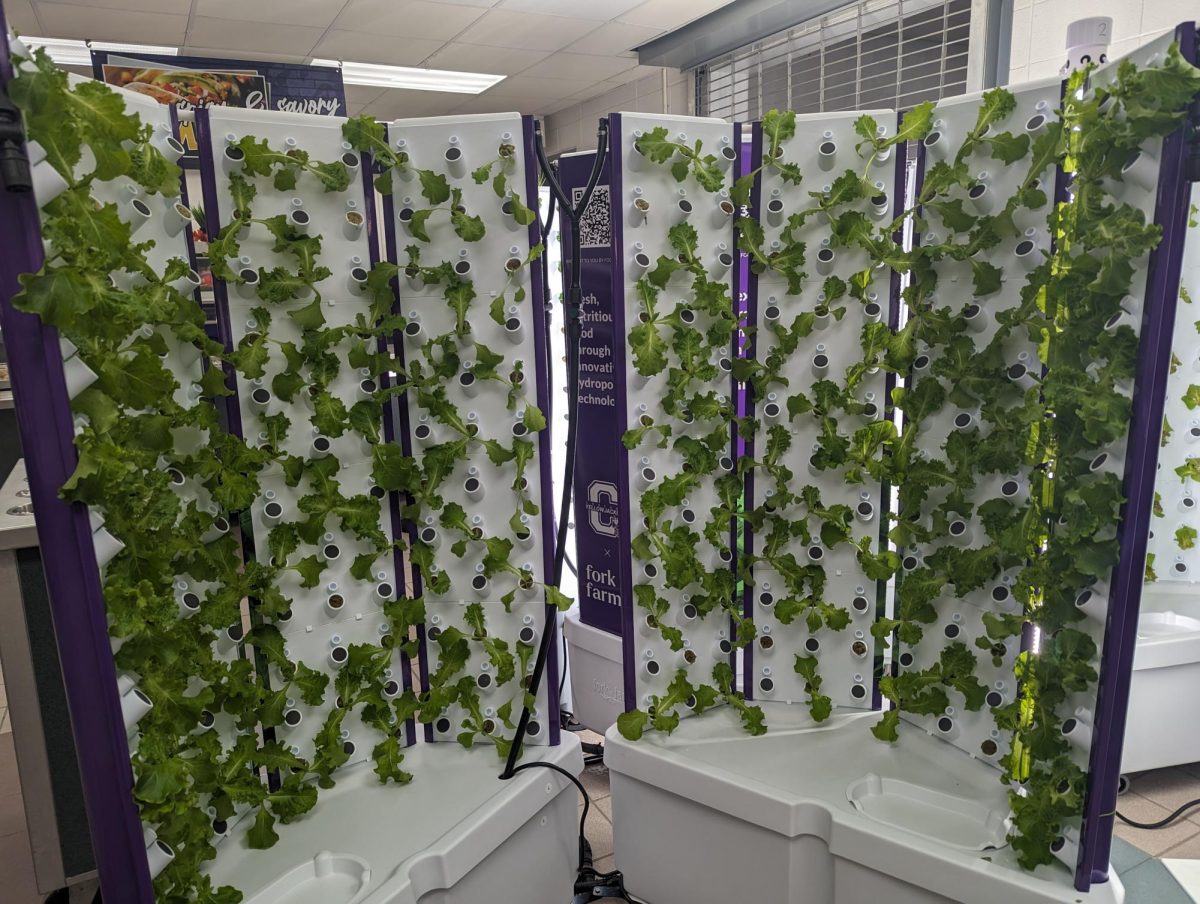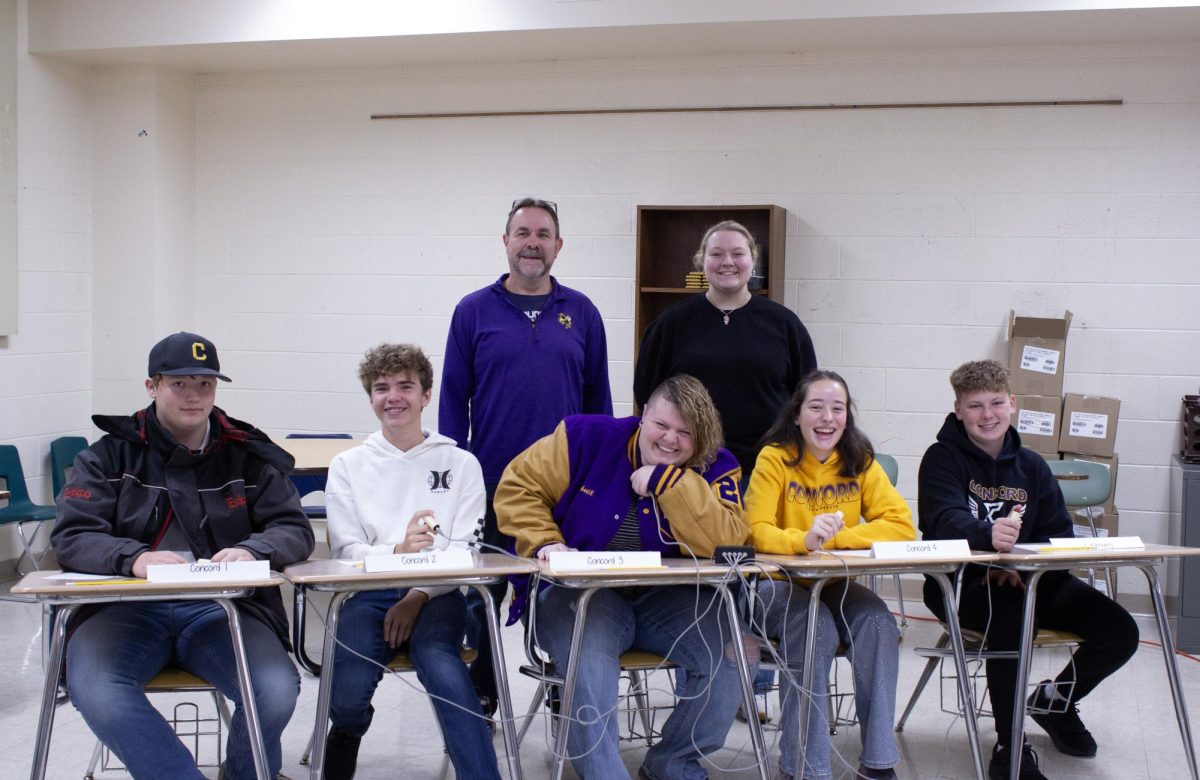The collaboration between Concord’s food service and our second year plant science class utilizes Flex Farms hydroponic systems to grow a variety of produce. These systems increase student involvement by growing produce rather than shipping it in. The operators of these systems are food services director Alan Breneman, and seniors Rylee Sinden, Gwen Bulko and Savanna Alejandro. Siden, Bulko, and Alejandro maintain all the needs of the system, responsibilities as second year plant science students with the maturity to be trusted with expensive equipment.
Flex Farms are a valuable, innovative invention used to grow a plentiful amount of different plants. Machines of this magnitude aren’t cheap, costing $5,000 per machine. Although expensive, the technology is extensive with each machine equating to around 500 square-feet. The design also allows for minimal maintenance. Every month they’ll grow over 25 pounds of diverse produce.
Breneman, the overseer of the entire operation, is responsible for ensuring the program’s success. Breneman sees the program growing in the years ahead: “[W]e are looking to expand the operation.” He explains, “Our goal is to have the whole operation run by the students of the school.”
The effectiveness of the Flex Farms are substantial. Breneman explains how they’ll be used: “The hydroponic flex farms are going to provide Concord with a hands-on opportunity for students to grow items such as lettuce, herbs, cucumbers, cherry tomatoes, strawberries and peppers.” He continues,“Once harvested, these items will be prepared in dishes for lunch and served on the fresh fruit and vegetable bar.”
Sinden is a supportive member of the hydroponics program. While working with the program, she’s learned a lot and believes in the plan. Sinden explains, “I think they started it because other schools started it in the district, and I think we wanted to do something different, we wanted to create uniqueness for our cafeteria as well as easier access to fresh vegetables.” The Hydroponic systems are complex, but that doesn’t mean it makes it harder to care for. Sinden continues , “I like how the water circulates through the machines by itself, so we don’t have to maintain that part of it everyday.” She adds, “I also like how we’re able to change the nutrition levels and the pH levels by ourselves.” Sinden appreciates the design of the Flex Farms and is excited to be involved in this project.
Alejandro is another of the three student members working to maintain the Flex Farms. She is an involved and hardworking student who enjoys working with hydroponics. Alejandro explains that all three students share the workload: “There’s not a specific leader or roles, we divide the work equally and work as a team.” The Flex Farms are interesting machines that can be difficult at times, Alejandro explains that, “It’s fun and different, it can be challenging with the towers and if the water’s pH levels are the correct or not.” Despite some challenges Alejandro believes that, “it will impact the school positively, it’ll encourage younger grades to want to get involved in environmental projects, be more positive, and help people eat healthier.”
Alejandro’s interest in the science behind these systems is apparent. “I think it’s creative because I’ve never heard of Hydroponics, I also think it’s fun and something different plus [we] three are the ones who get to do it out of everyone.” She appreciates having the opportunity to work with the hydroponic machines.
The importance and benefits of the Flex Farms are indisputable. They use advanced technology and impressive engineering to effectively produce vegetation for the students of Concord High School. This influences the students to be engaged in hands-on learning experiences as well as eating healthier. The produce from the hydroponic towers will be ready to harvest in, “[A] couple of weeks with the lettuce, around three weeks max for the rest,” says Alejandro. Although these systems are advanced, the plants take time to grow, but the fresh produce will be worth waiting for.
The future of hydroponics is bright as well as beneficial. The idea of growing greenery in smaller spaces has been studied for many years and with the help of modern knowledge systems like the Flex Farms can thrive. These machines may only be able to grow a certain variety of plants as of now, but the more technology advances, the more opportunities open. Hydroponics has proven useful already, stay tuned to see what the future of these systems hold!









